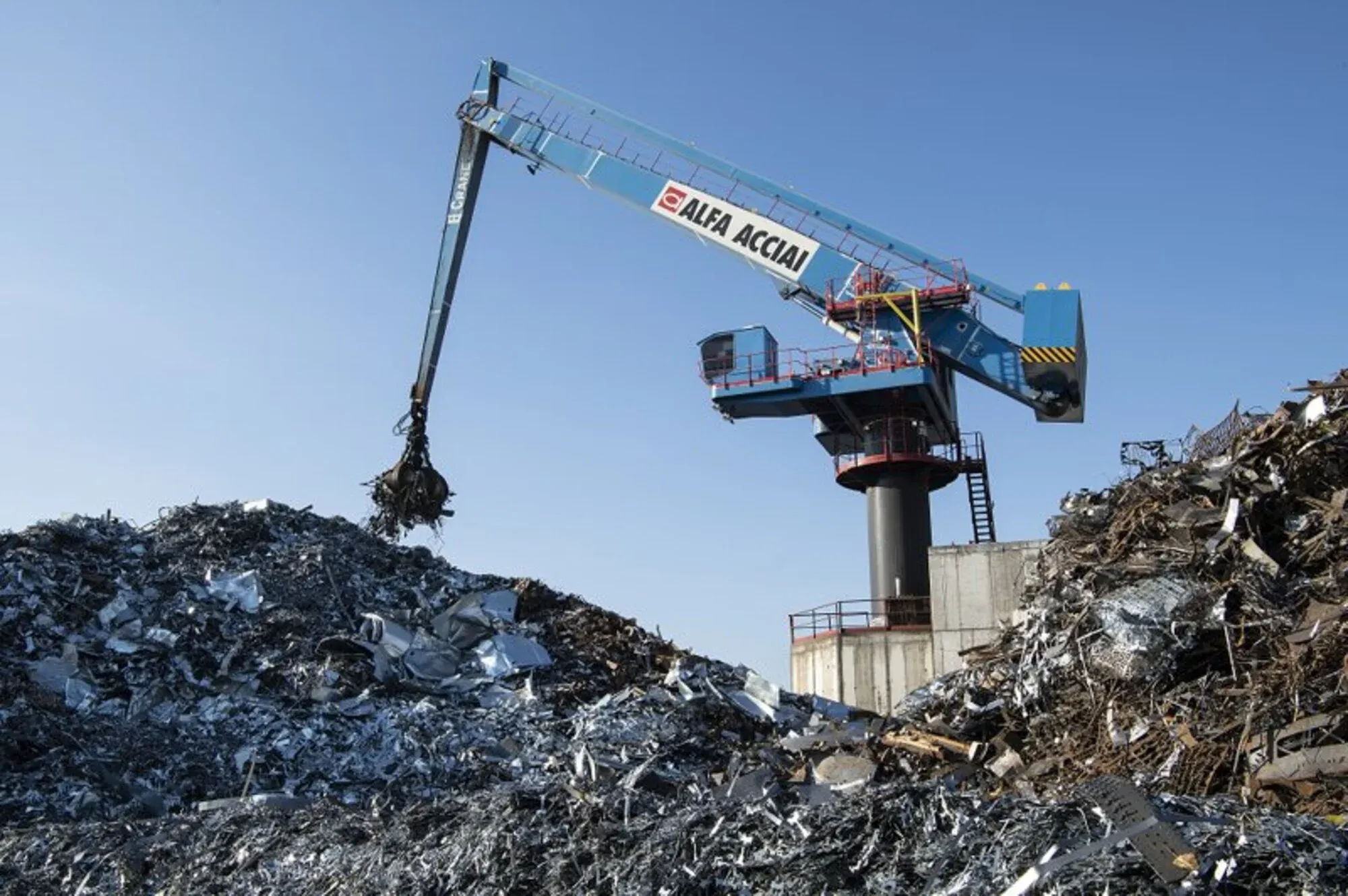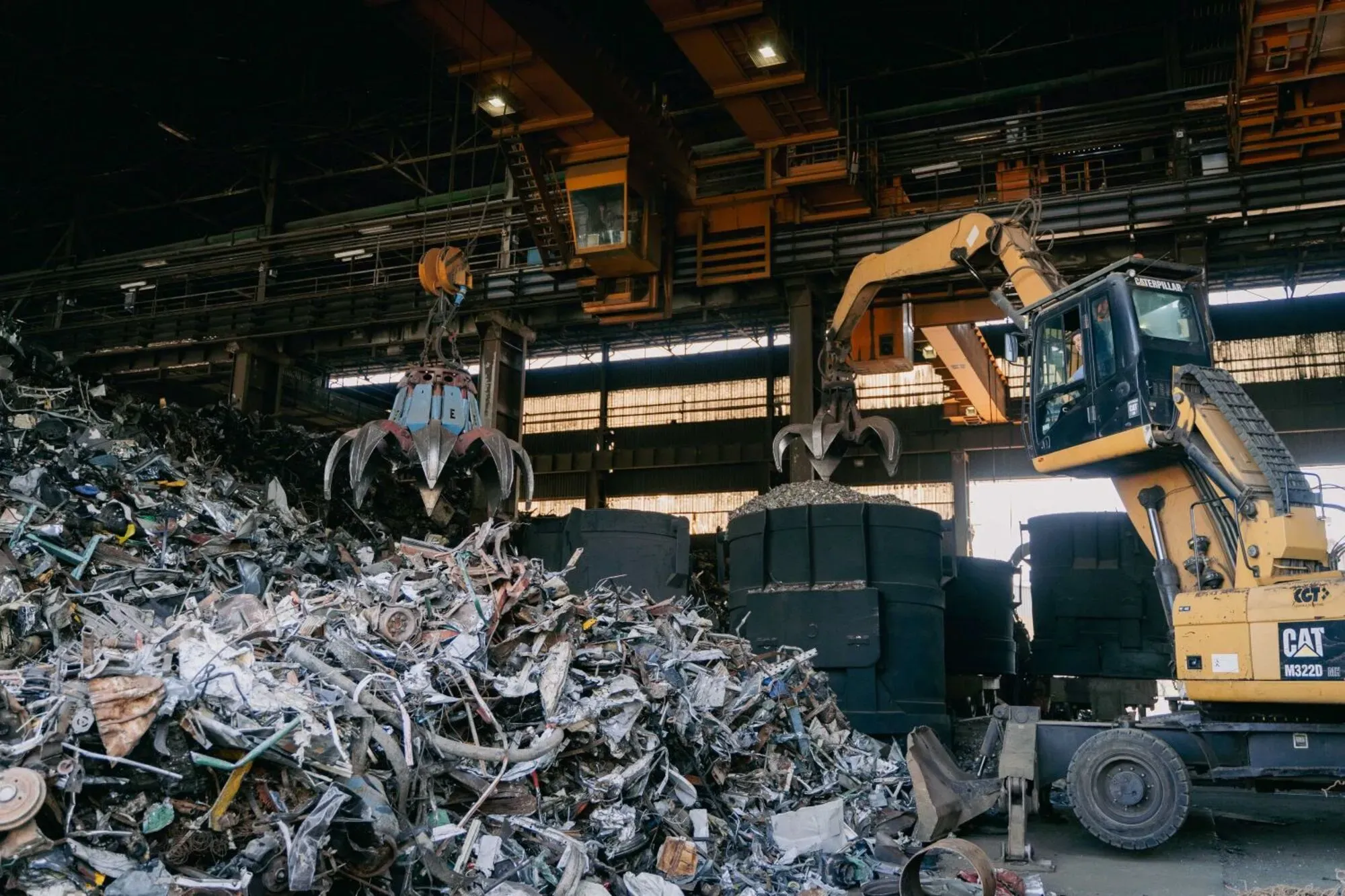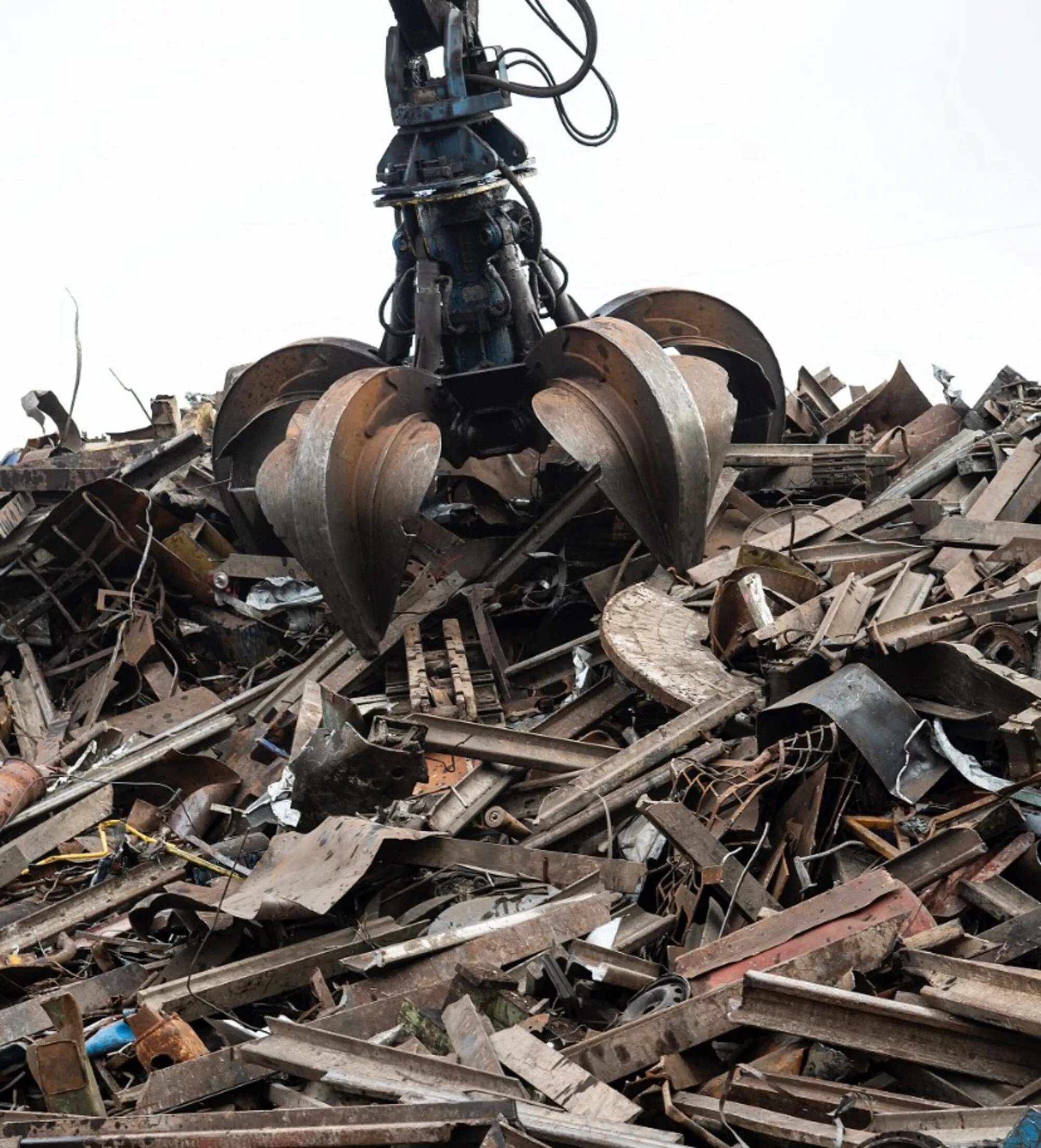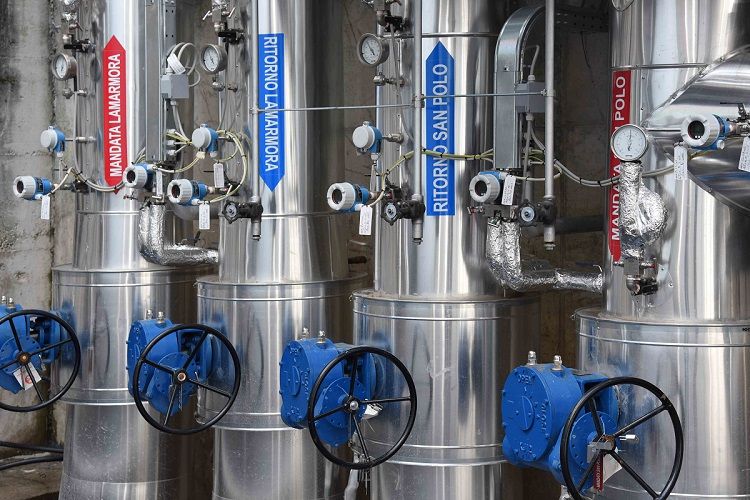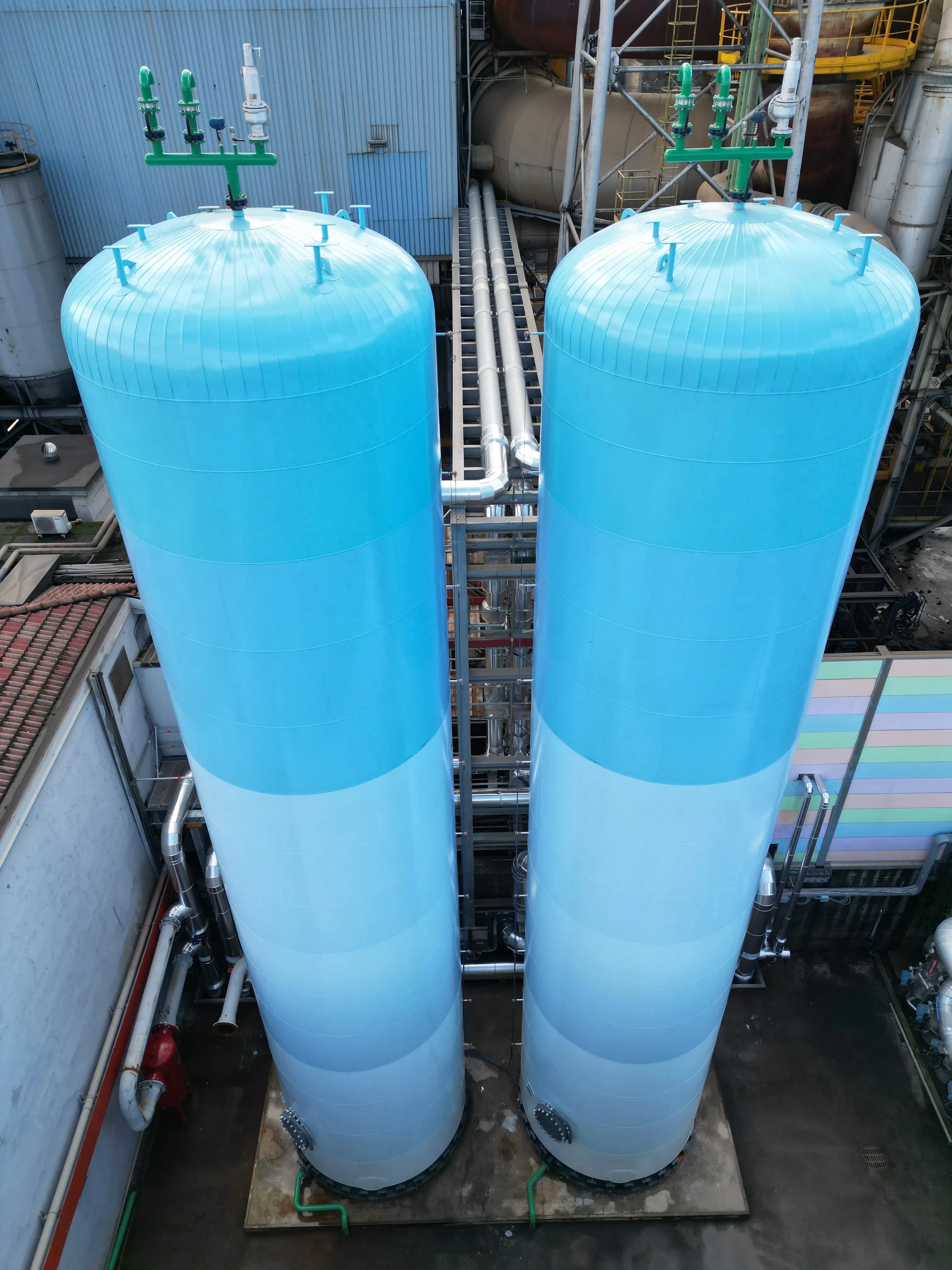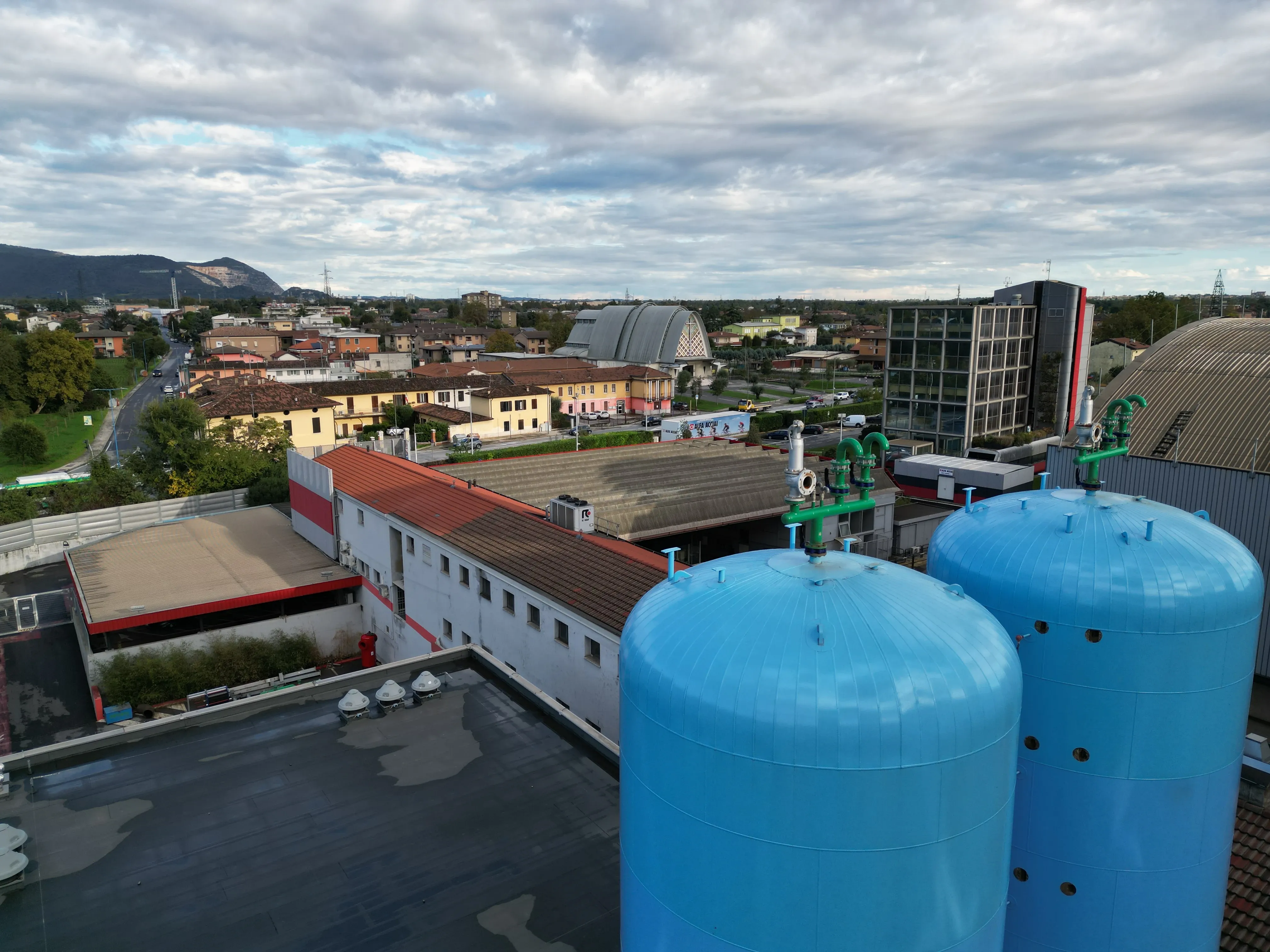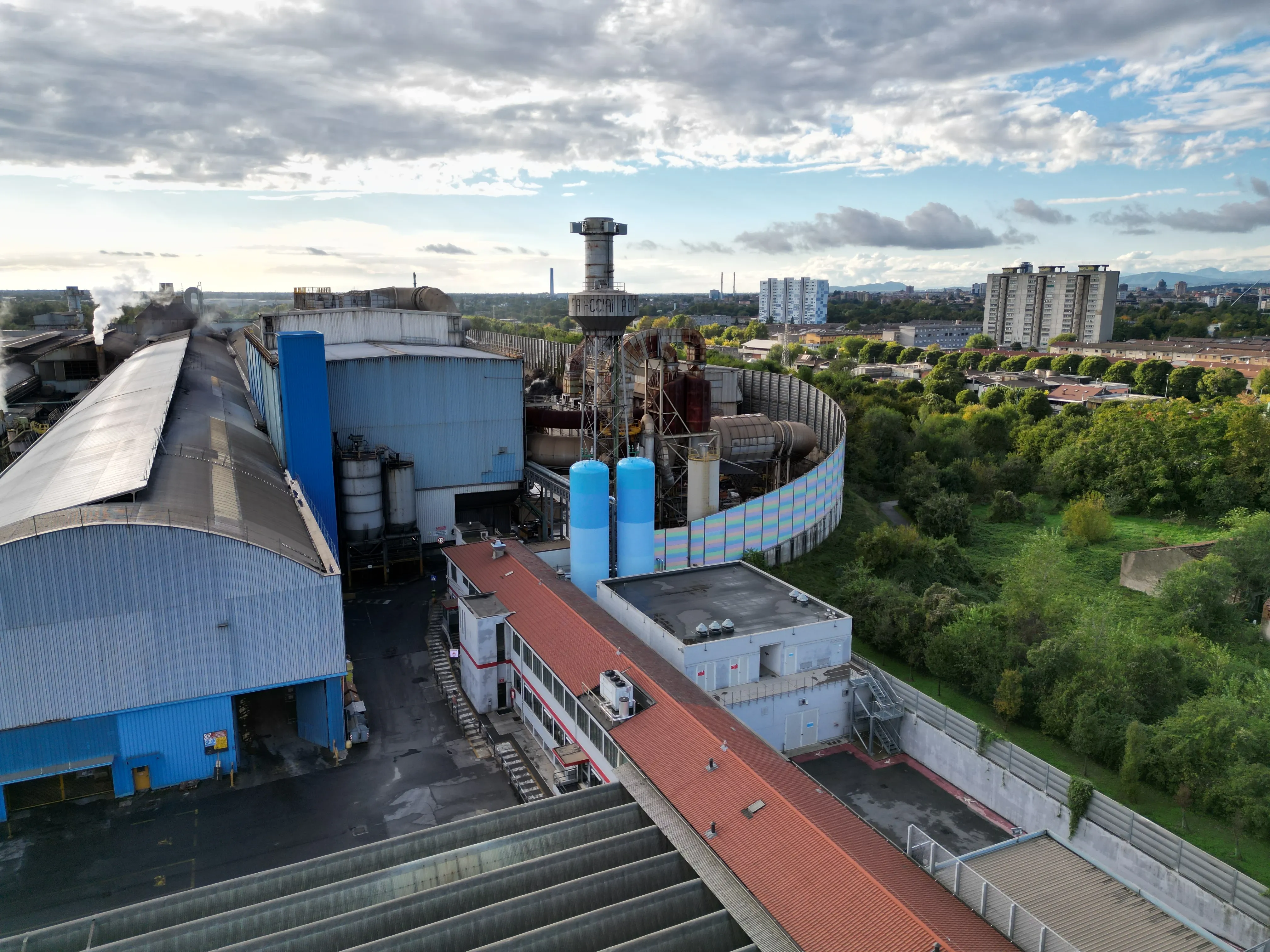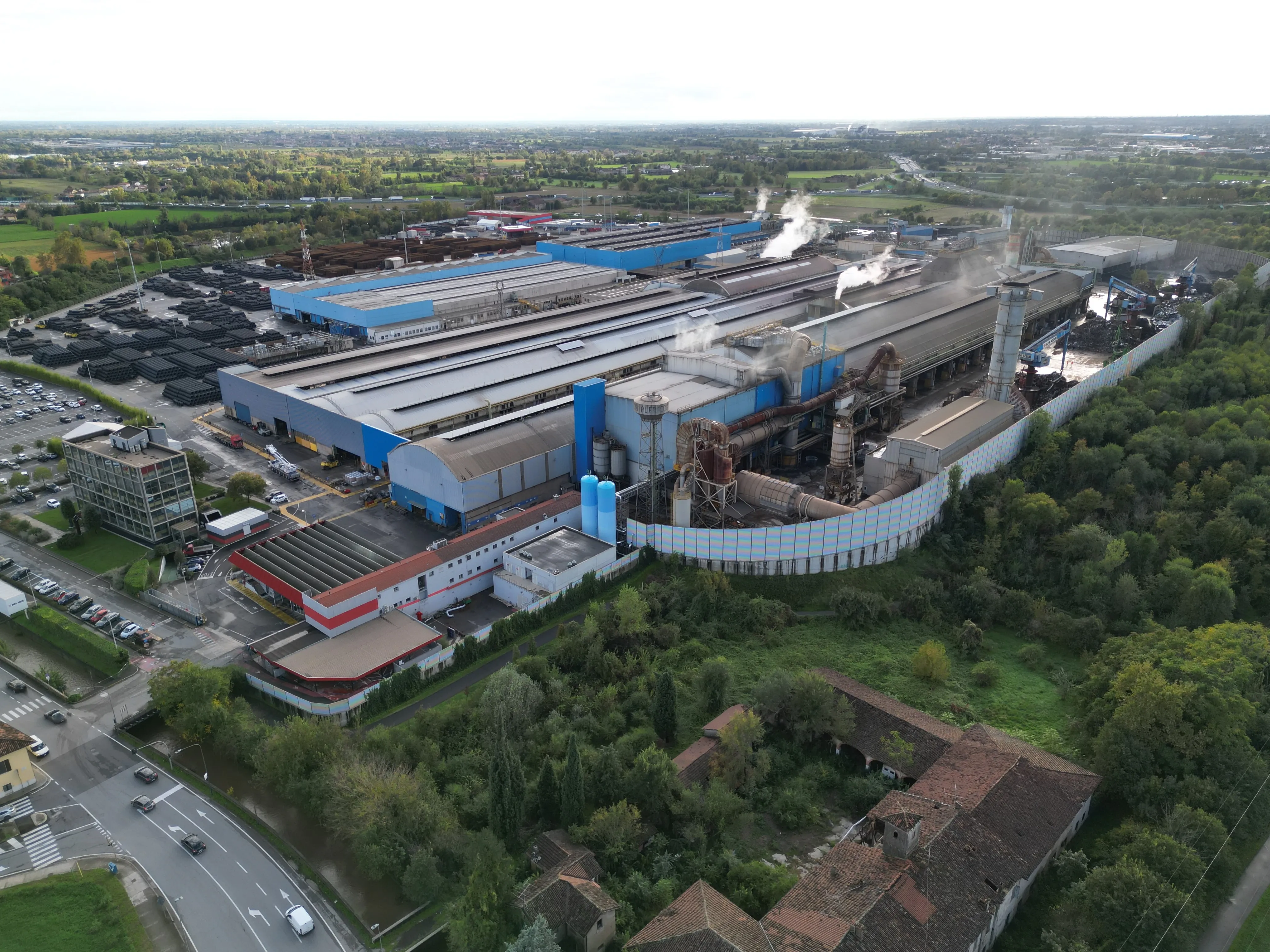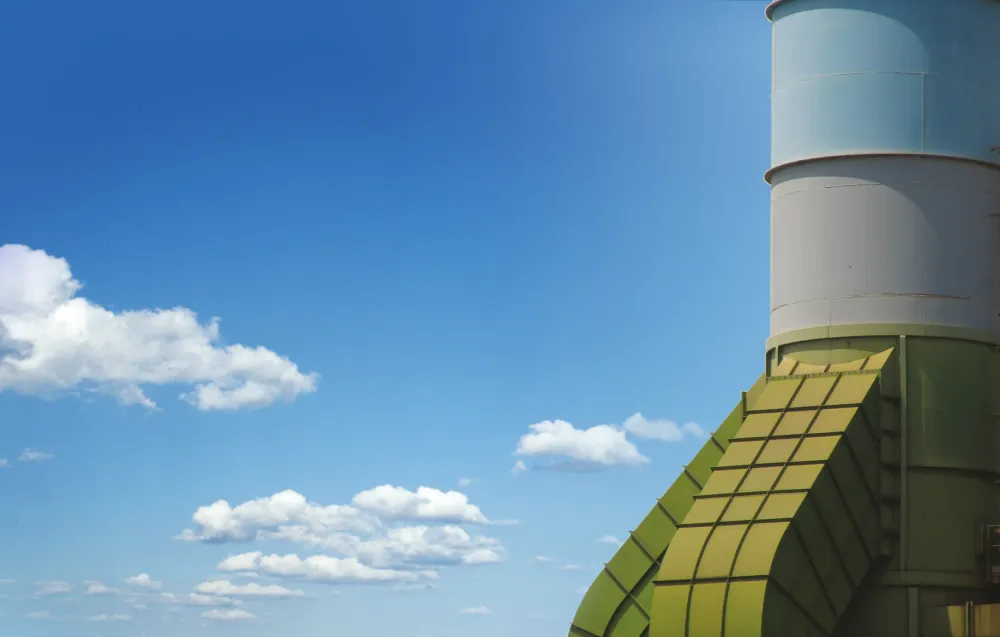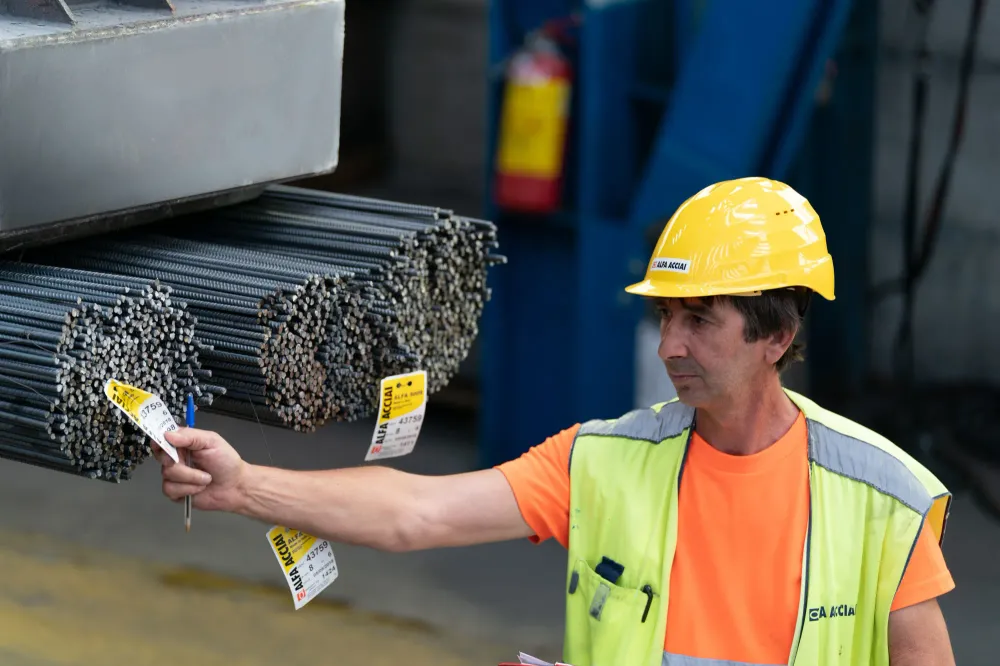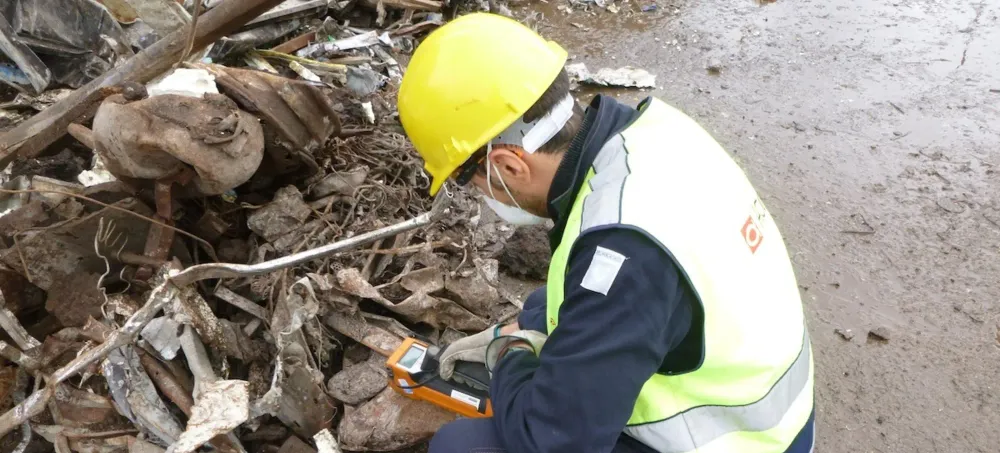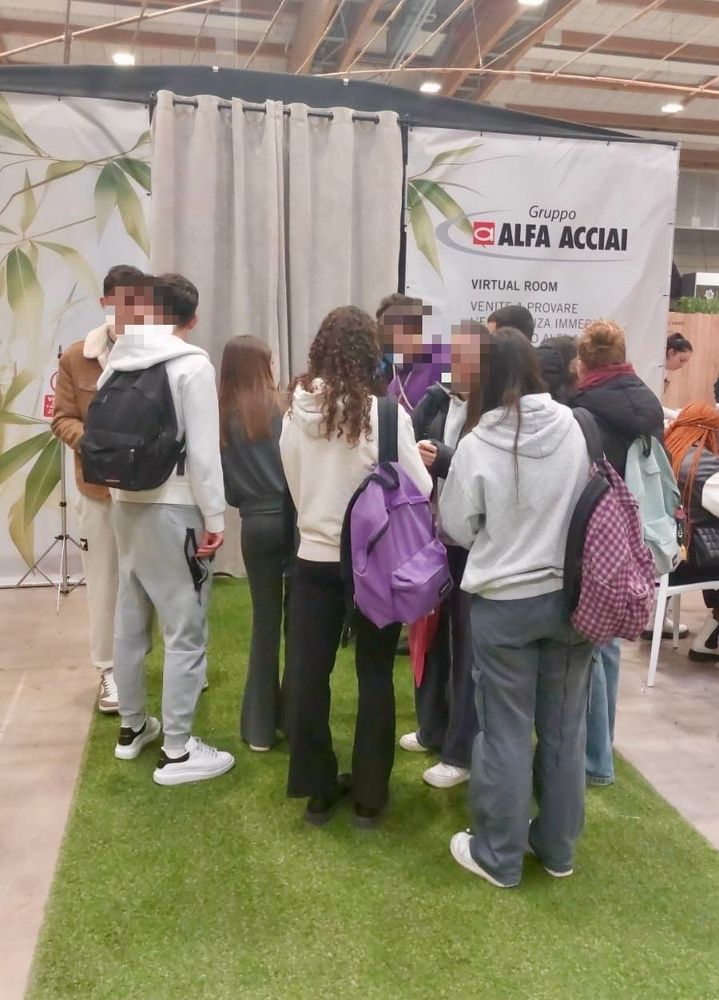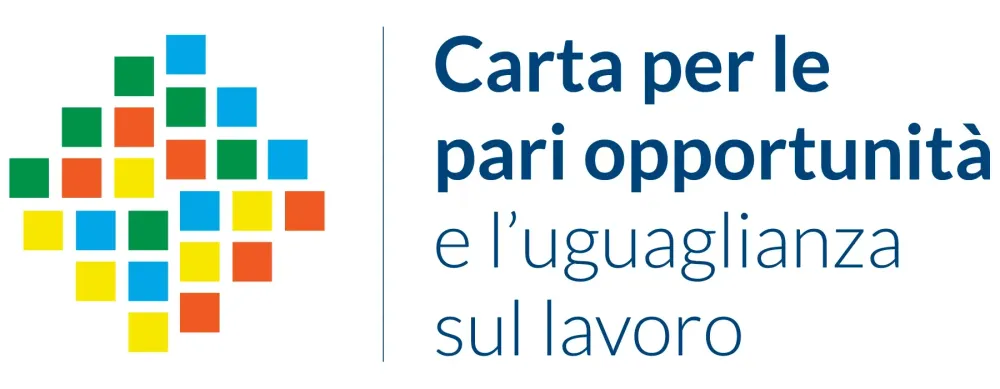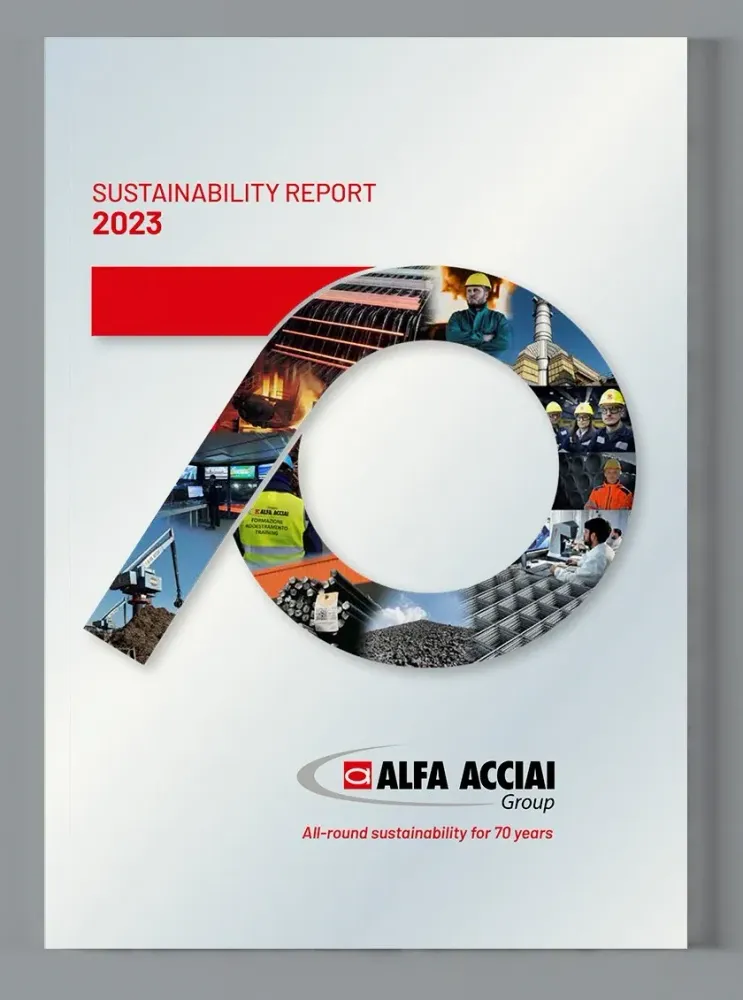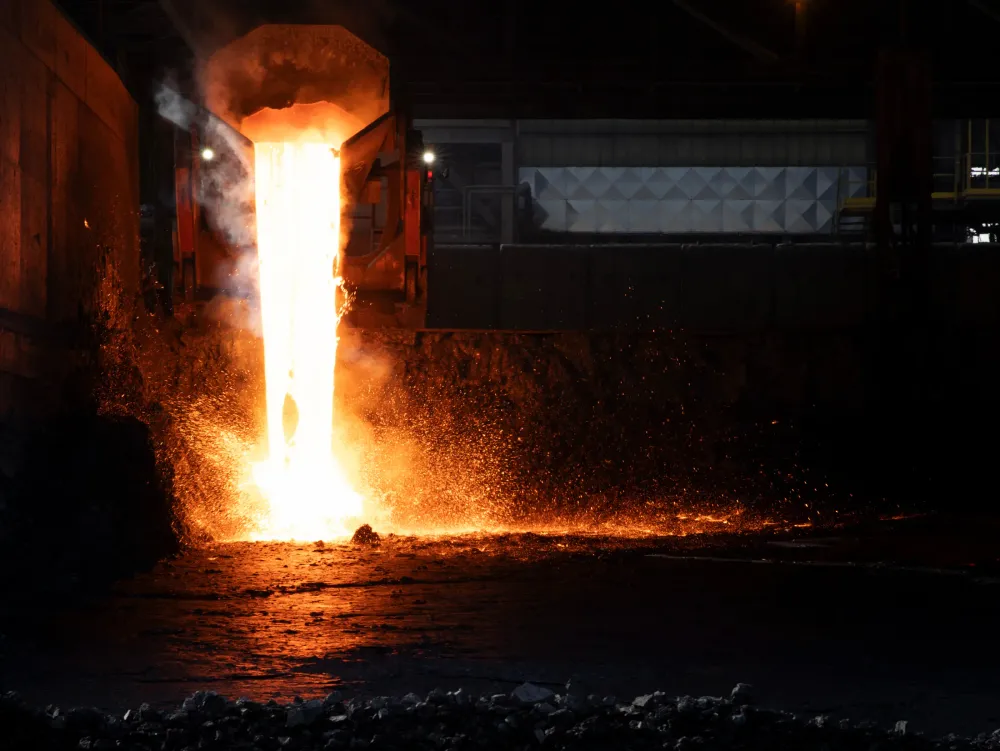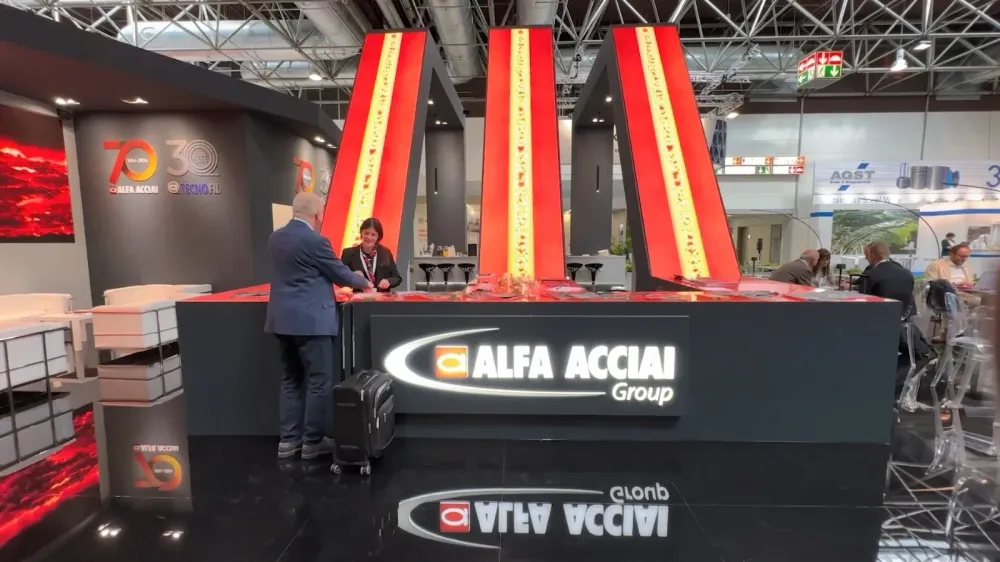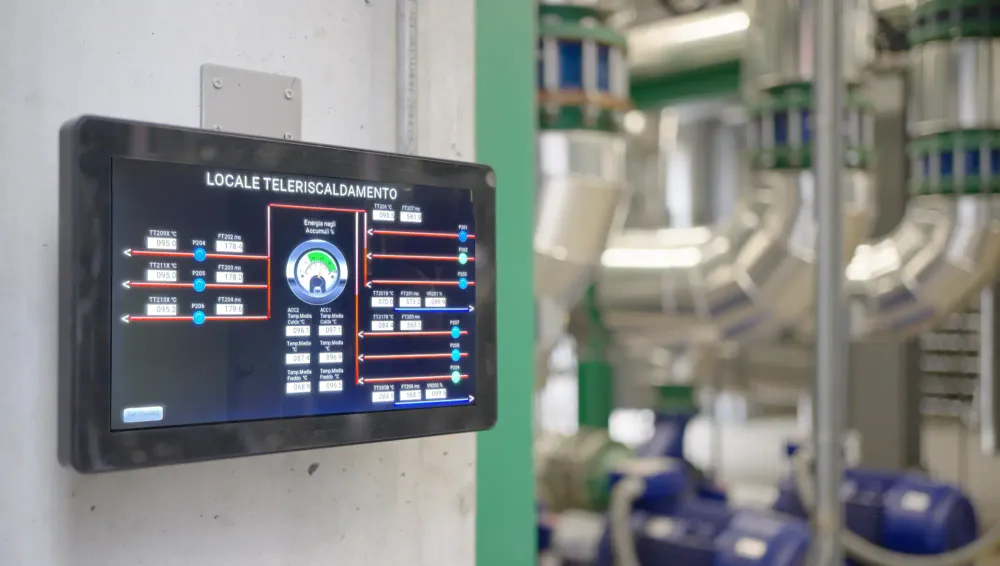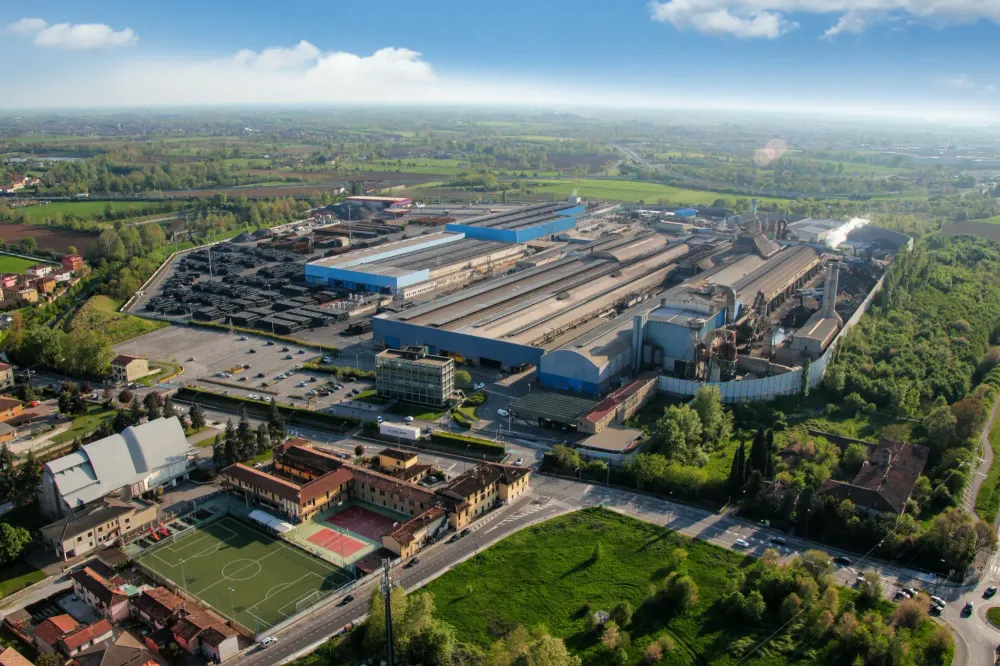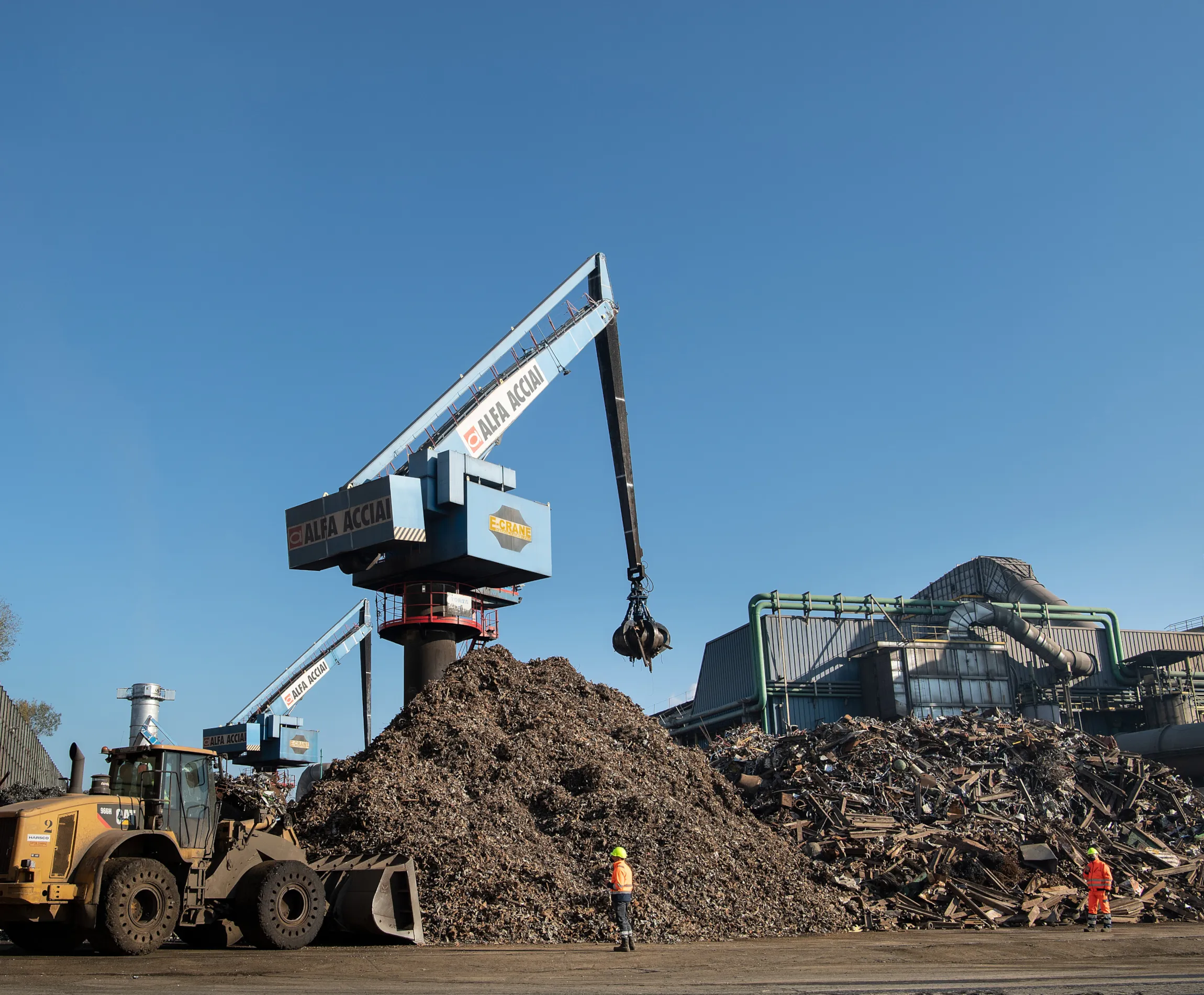
EAF-Processed steel and the Minimum Environmental Criteria (MEC)
Steel is a permanent material and the products that leave the Group's steel mills for new applications, at the end of their life cycle, can be 100 per cent recycled an infinite number of times through remelting.
Steel retains its characteristics over time, without any loss of quality or degradation of its mechanical properties, which is why it is the most recycled material in the world and hence crucial for the development of a sustainable economy.
The steel lifecycle
In its Brescia- and Catania-based steel mills, the Alfa Acciai Group annually recovers about 2 million tonnes of ferrous scrap.
The finished product has a minimum content of certified recycled material (UNI/PdR 88:2020 certification according to UNI CEI EN ISO/IEC 17067) of 99,0% for Alfa Acciai and Acciaierie di Sicilia, providing the market with truly "green" products.
99%
Minimum recycled material content at Alfa Acciai and Acciaierie di Sicilia.
This figure is among the highest in Europe and far exceeds the Minimum Environmental Criteria for structural applications set by the CAM - Edilizia, which is Italy’s most important environmental standard in the construction industry
Our incoming materials and process materials
The Group has always been firmly committed to minimizing its environmental impact and resource consumption, making greatest extensive use of recycled raw materials.
Ferrous scrap is the main raw material used in quantitative terms for steel production from Italy and abroad, accounting for about 95% of the raw materials used by Alfa Acciai and Acciaierie di Sicilia, while the other materials used are lime, ferroalloys, magnesite and coke.
Steelmaking requires not only raw materials, but also process materials that are crucial for production.
For example, additives and process agents, now partly consisting of polymers, contribute to the formation and regulation of the chemical composition of steel and slag, which protects the steel bath; refractory materials lining both the furnace and ladle help limiting heat loss; inert gases serve to stir the bath for homogenisation. All these materials are basically essential to achieving a quality product.
Spent refractory material instead of magnesite
100% of spent refractory material coming from the melting furnaces are fed back into the production cycle as partial raw material substitutes (magnetise), thereby preserving other valuable natural resources.
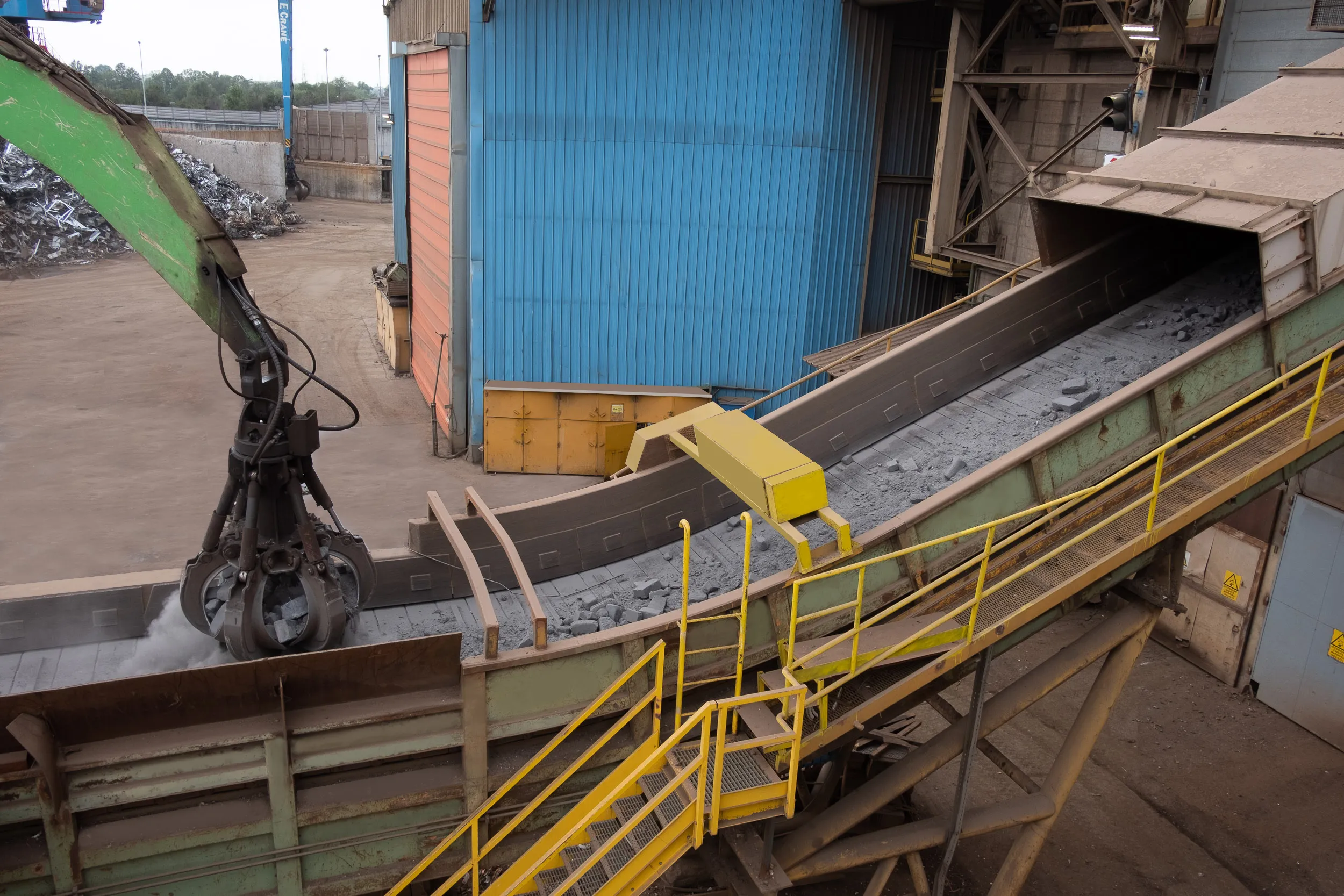
Polymers replacing coal
A test project commenced at Alfa Acciai in 2021, involving the use of polymers obtained by recycling used plastic in accordance with standard UNIPLAST-UNI 10667, capable of partially replacing coal and its derivatives as a reducing agent in the oxi-reduction reactions of ferrous materials.
The replacement process transpired gradually with a use percentage rising to 18% in 2022.
The use of polymers in the electro-melting process is a remarkable example of the benefits that can be achieved through the synergy of the circular economy: on the one hand, in conjunction with the world of recycling of plastics, what would otherwise be an environmentally harmful waste is put to good use; on the other hand, plastic polymers, used in the steel melting process, contribute to the reduction in emissions and decarbonisation.

Zero waste
The Group does not only give new life to ferrous scrap, it also strives to enhance the added value of each generated waste by passing it on to other circular economies, feeding the value chain and thus fostering material recovery.
Zero Waste philosophy is a cornerstone for the Group, which, by creating real forms of industrial symbiosis, makes it possible to systematically apply the principle of circular economy, with the aim of reusing, recovering and enhancing every material resulting from the various processing stages, thereby safeguarding precious natural resources.
Alfa Acciai’s and Acciaierie di Sicilia’s ferrous scrap circular economy is linked to other circular sub-economies associated with the steelmaking process:
- Black slag from the steelmaking process is sent to the processing plant where it is recovered for use as an aggregate. Alfa Sintone®, Gripstone® and Sicilystone by-products can be used either as aggregates in bituminous and cement conglomerates or high-permeability draining layers, both in place of materials of natural origin, thereby saving non-renewable natural resources;
- The ferrous scrap shredding process following sorting generates non-ferrous metals (i.e. aluminium and copper) that can be used in other external production cycles;
- The smelting process generates metal dust with a high zinc content that is used in other circular production cycles to extract metal zinc (valuable to our economy);
- The rolling process generates the mill scale (basically an iron oxide) used in the cement clinker production industry;
- 100% of spent refractory material coming from the melting furnaces are fed back into the production cycle as partial raw material substitutes (magnetise), thereby preserving other valuable natural resources.
Alfa Heat Recovery
Alfa Heat Recovery provides the opportunity to extend the circular model, which is typical of our production system based on scrap recycling, to the management of energy flows.
Since the 2023-2024 winter period, the plant located at Alfa Acciai has recovered heat from two EAFs of the steel mill and has transferred it to the Brescia district heating network run by A2A.
As a result of this synergy, fuel consumption for heating the community is significantly reduced, as well as the CO2, nitrogen oxides and dust emissions.
More specifically, below are some of the figures obtained by Alfa Heat Recovery, the result of a research process started in 2016:
- A total plant capacity of 25MWt, transferred to the district heating network;
- 4,000 tonnes of oil equivalent saved, corresponding to the average methane consumption of 5,000 households;
- 10,000 tonnes of CO2 cut per year, equivalent to the average emissions of 10,000 cars;
- Significant reduction in nitrogen oxides and particulates.
The installation reinforces the deep integration that has always characterised our facilities and the surrounding urban fabric.

